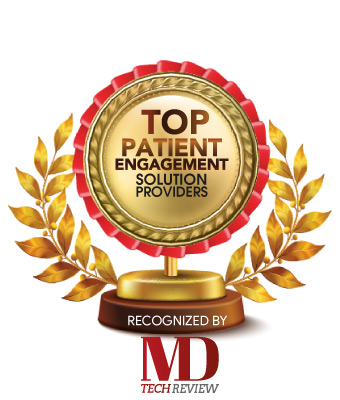Patient engagement is an essential asset for every medical practice, but raising your facility's patient engagement rate might be a minor difficulty for certain hospitals.
FREMONT, CA: Patients' participation in their healthcare has been proved to improve their overall healthcare experience. Allowing patients to take an active role in their medical treatment instills a sense of empowerment in them when making healthy decisions and reaching out to healthcare providers with questions and concerns. Here are four ways to improve patient engagement rates in healthcare:
Information Resources:
 Make sure to give patients important healthcare information about some of their favorite topics, such as new medications or therapies on the market. These tools can help you advertise what's going on in the world of healthcare and what new possibilities will be available to your facility's patients in the future. These informational tools should be highly accurate and conveniently available to hold patients' attention and keep them interested.
Make sure to give patients important healthcare information about some of their favorite topics, such as new medications or therapies on the market. These tools can help you advertise what's going on in the world of healthcare and what new possibilities will be available to your facility's patients in the future. These informational tools should be highly accurate and conveniently available to hold patients' attention and keep them interested.
Social Media:
Social media is a promotional powerhouse that allows people and their healthcare professionals to communicate directly. Launching a social media campaign to link patients with others dealing with similar issues can help empower people who are feeling isolated and urge them to communicate with organizations that provide medical assistance. Encouraging those suffering from chronic pain and conditions to share their stories and experiences can provide an outlet for patients to express their frustrations. This can also provide some understanding to those who may not be aware of the condition or have only recently begun to suffer from chronic pain.
Online Portals:
Patients and healthcare providers can benefit from online portals because they can store vital medical information that is available through a simple portal login. Patients can supply as much or as little data as they like to these online portals, but the more data provided to healthcare facilities, the better treatment they can deliver to patients. Patients have a readily accessible online outlet to keep track of their medical history, blood test results, and treatment progress, while providers can track patient progress.
Reminders for Appointments:
Many patients have a lot going on in their lives daily, and remembering different physicians' appointments in between their regular activities can be difficult. Therefore, patients can benefit from an appointment reminder system since it helps them remember their appointments, reduces no-shows, and encourages them to book a follow-up visit. In addition, reminding patients via numerous channels, such as email or text, helps the medical process feel less intimidating and more casual for both patients and healthcare professionals.


